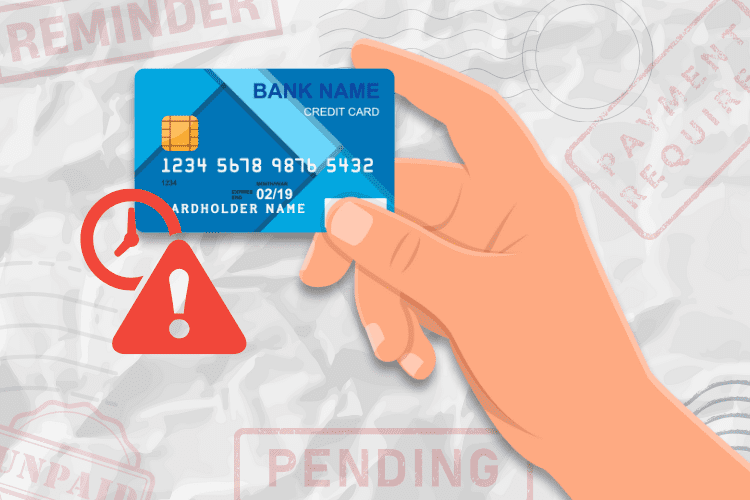Avoid These 10 Common 401(k) Errors to Maximize Your Retirement Funds

If you’re dreaming about a comfortable retirement, having a solid 401(k) has been a reliable option for many Americans. Unfortunately, most accounts are mismanaged, leading to losses future retirees probably won’t get back.
For example, look at the many Boomers struggling to regain their pre-pandemic portfolios. Their average 401(k) account is still 12% lower compared to 2021.
It’s frustrating to see people losing thousands and possibly putting off retirement for longer.
Fortunately, you have plenty of ways to properly manage your 401(k) and maximize your retirement funds.
Let’s review the top 10 common mistakes 401(k) users make and how to avoid them!
Why Is Managing Your 401(k) So Important?
Don’t take your 401(k) for granted. It’s a powerful tool to build some wealth over your working lifetime.
When you contribute, the most significant advantage is the sweet tax benefits. Up to $22,500 is tax deductible, which goes up to $30,000 once you hit 50.
Many companies also do a matching program where they’ll put money into your account based on what you put into it each month. This translates into even more cash in your pocket once you reach retirement age.
If you play your cards right and manage your account wisely, you can build an impressive nest egg over time.
Top 10 Mistakes that 401(k) Users Make
Managing a 401(k) is complicated, especially if you just started. Here are some common mistakes users make and some tips to avoid them:
1. Not Choosing Your Investments
I know it’s easier to “set it and forget it,” but researching and learning about what you’re investing in will help you better manage your portfolio.
Try not to rely on one industry or company, even if it’s your employer’s. Changes happen constantly, so always aim for a mix of stocks, bonds, and other asset classes that minimize risk and improve potential returns each year.
2. Not Contributing Enough
With 4 in 10 workers not contributing to their 401(k), way too many Americans are leaving useful financial benefits on the table.
Think of this program as a way to protect your future. You don’t need to give the highest amount, but at least enough to get the full match offered by your employer.
Over time, the extra money will boost your retirement funds due to compound interest.
3. Ignoring Fee Structures
Many investors need to pay more attention to the impact of fees on their 401(k) balances. Even the most minor percentage change adds up over time and can eat into your retirement savings. Check your plan’s fee structure and consider lower-fee investment options when possible.
4. Failing To Update Beneficiaries
Big life changes like marriage, divorce, or having a child can affect your future plans. Keep your 401(k) beneficiary designations up-to-date to reflect this. By doing this simple step, everyone’s on the same page, and you’ll prevent potential misunderstandings.
5. Cashing Out Early
Withdrawing from your 401(k) before retirement age could lead to you forking over thousands to Uncle Sam in most cases. You’ll also be diminishing the power of compound growth that you would’ve had if you left your money untouched.
It may seem wise in the short term but try to resist the temptation to withdraw early. Your money will be a lot more useful if you wait.
6. Overlooking Roth 401(k) Options
A Roth 401(k) can be a powerful tool, giving you tax-free growth and withdrawals in retirement. This program can provide significant benefits if you expect to be in a higher tax bracket later.
Compare the features of a Roth 401(k) with a traditional 401(k) to see which better fits your needs before committing to one.
7. Not Reviewing Your Portfolio Regularly
It’s crucial to revisit your investment choices periodically. Your risk tolerance and time horizon can change as you near retirement, warranting a shift in your investment strategy. Regular rebalancing ensures your portfolio aligns with your current goals and risk profile.
8. Not Increasing Contributions Over Time
As your salary increases, gradually raising your 401(k) contributions can impact your retirement savings. Even small annual increases can beat inflation and dramatically boost your portfolio, thanks to compound interest.
9. Being Too Aggressive or Passive With Your Strategy
A balanced investment approach is essential. Being overly aggressive could lead to bigger losses, while being too conservative might not yield the growth needed to retire comfortably. Remember to personalize your investment strategy to meet your retirement goals and balance risk and returns.
10. Not Taking Advantage of Catch-Up Contributions
If you’re over 50, the IRS allows additional “catch-up” contributions to your 401(k). These extra funds are a life-saver if you’re behind in your retirement savings. As long as you meet the maximum amounts, these contributions are a valuable tool during your final working years.
The Bottom Line
Your 401(k) is a critical part of your retirement strategy. By avoiding these mistakes, you’ll have no problem securing a future for yourself past your working years.
It’s never too late to realign your 401(k) strategy. Review your plan’s details, stay informed, and not lose track of your goals!
Read more:









